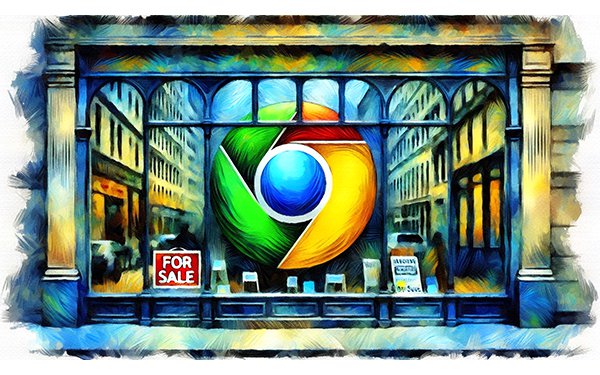
It's not a simple idea to sell Chrome in order
to solve monopolistic practices -- although some advertisers, platform providers and technologists want sectors that Google operates in to become more competitive. Android also could come into
play.
This week the Department of Justice (DOJ) wrote in a court filing released Wednesday that it will try to convince District of Columbia Court Judge Amit Mehta to force Google to
sell Chrome, as well as making other concessions. The trial will likely begin in 2025.
If Google must sell Chrome based on the outcome of this monopoly suit, it will have a major impact on the
advertising industry, and not all will be happy with the outcome. The old saying "be careful what you wish for" for may come true, and it could have a drastic outcome.
This week, the
Department of Justice began pushing the court to force Google to sell Chrome. Executives across the industry have begun to weigh in on the possible change.
advertisement
advertisement
Even Mathieu Roche, CEO and
co-founder of ID5 -- who has been critical about many of Google's decisions around cookies -- believes the DoJ's proposed divestiture of Chrome falls short of establishing a truly fair and
competitive landscape.
He wrote that Chrome does play a significant role in maintaining Google’s dominance -- especially in search. ID5 focuses on privacy-compliant solutions
to identify users.
"Browsers like Chrome don’t generate direct revenue, instead their viability is closely tied to search advertising," Roche wrote in an email to MediaPost. "Selling
Chrome wouldn’t necessarily prevent Google from maintaining its position as the default search engine."
Roche shared what he called "a more effective solution," focusing on addressing
Google’s control over search ad revenue to create opportunities for other companies to compete. Doing this balances the power in search advertising and eliminates an artificial preference
for Google ads that fosters innovation and efficiency among competitors.
It has been interesting to hear from executives who have been critical about Google's moves in other areas such as
cookies.
"Chrome is undeniably one of the most adopted browsers on the market with about 3.45 billion users around the world," added Davide Rosamilia, ID5 vice president of product.
"Forcing Google’s hand to sell Chrome could have extensive ramifications, particularly in regions like Asia where it dominates mobile usage. Browsers play a critical role in everyday life, not
just advertising."
Browsers also require immense upkeep, he explained -- and, realistically, only major tech players can manage this. If a tech giant like Amazon or Meta were to acquire
Chrome, it might only shift monopolistic dynamics. It would essentially go "from the frying pan to the fire," he said.
"The DoJ's move is interesting, but competition issues in programmatic
media and resulting market distortions go far beyond search,' said Grant Gudgel, senior vice president of marketing at Verve, which connects advertisers with publishers across digital.
"This might result in more competition in search. Though even this is debatable, I'm not convinced it will translate to added value for consumers who rely on Chrome's data connection capabilities
across Google's products and to access other services, nor for advertisers who rely on Google's data for buying media in other non-search media channels."
The devil is in the
details, so if the data connections between Chrome, Android and Google's wider product ecosystem remain intact, the net effect of a "breakup" would be negligible, while cutting those
connections would lead to a degraded consumer experience and possibly additional cost to advertisers who have to pay separately for data, Gudgel said.
Gudgel also said the DoJ's decision might
prove punitive for past actions, the real change in digital media will more likely come with innovations in new channels beyond search.
One of those new channels, of course, includes
artificial intelligence (AI) and the impact it will have across the entire ad industry, I believe.
I also believe the DoJ does not know Google's business model and the advertising industry
well enough to have an impact that could potentially destroy what hundreds of companies have built in the past 20 or more years.
If it insists on making the change, the DOJ needs to come up
with a better solution, but sometimes it appears it does not have the will, the knowledge or the manpower to make those types of changes. What it proposed will alter the path not only of browsers, but
media buying, creative and AI.
There is no shortage of users across the internet asking why a company should be punished for building a highly successful product.
The
publication Benzinga took a poll of its readers, asking which part of Alphabet would you most want to invest in if the company were to split up. Some 43% of its readers participating in the poll said
YouTube, 31% said Search, 17% said Andriod, and 9% said Chrome. When asked if the DoJ should break up Alphabet, 36% said yes, and the remainder said no.
The breakup of Ma Bell in 1983
allegedly benefited consumers with lower prices, but I have not seen the benefit. When the government tried to break up Microsoft, a federal appeals court overturned the breakup ruling but
affirmed the monopolization.
As the calendar moves toward 2025, it's likely that the same will happen with Google.